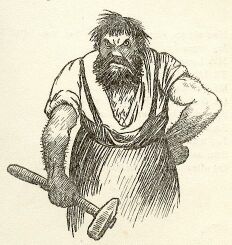Bolder is an English surname. Notable people with the surname include:
Hick is a surname or a nickname. Notable people with the name include:
Stenson is a surname. See "Stinson" for its origin. Notable people with the surname include:
Forrester is a surname of Anglo/Norman origin, referring to a forester. Notable people with the surname include:
The surname Monaghan is a family name originating from the province of Connacht in Ireland. Mostly a last name.

MacLaine or Maclaine is a surname of Scottish origin. It may refer to:
Kovalenko is a very common Ukrainian surname.
Soutar is a surname. It has Scottish origins. Notable people with the surname include:
Bold is a surname. Notable people with the name include:
Durkin is a surname. Notable people with the surname include:
Pavlou is a Greek surname. Notable people with the surname include:
Logan is a surname.
The surname O'Loughlin is an Anglicised form of the Irish Ó Lochlainn meaning "descendant of Lochlann". According to historian C. Thomas Cairney, the O'Loughlins were a chiefly family of the Corco Modhruadh tribe who in turn came from the Erainn tribe who were the second wave of Celts to settle in Ireland from about 500 to 100 BC.
Ferreiro is a surname of Galician-Portuguese origin, equivalent to English Smith. Notable people with the surname include:
Pierotti is an Italian surname. Notable people with the surname include:

Kavalyow or Kavaliou, or Kavalyova, Kavaliova, is a common Belarusian surname, an equivalent of the English "Smith" and Russian "Kovalyov".
Callegari is an Italian surname. Notable people with the surname include:
Woolfe is the surname of:
Bould is a surname, and may refer to:
Wienand is a German language surname. It stems from a male given name with the components win="friend" and nant="bold". Notable people with the name include:
Heward is a surname. Notable people with the surname include: